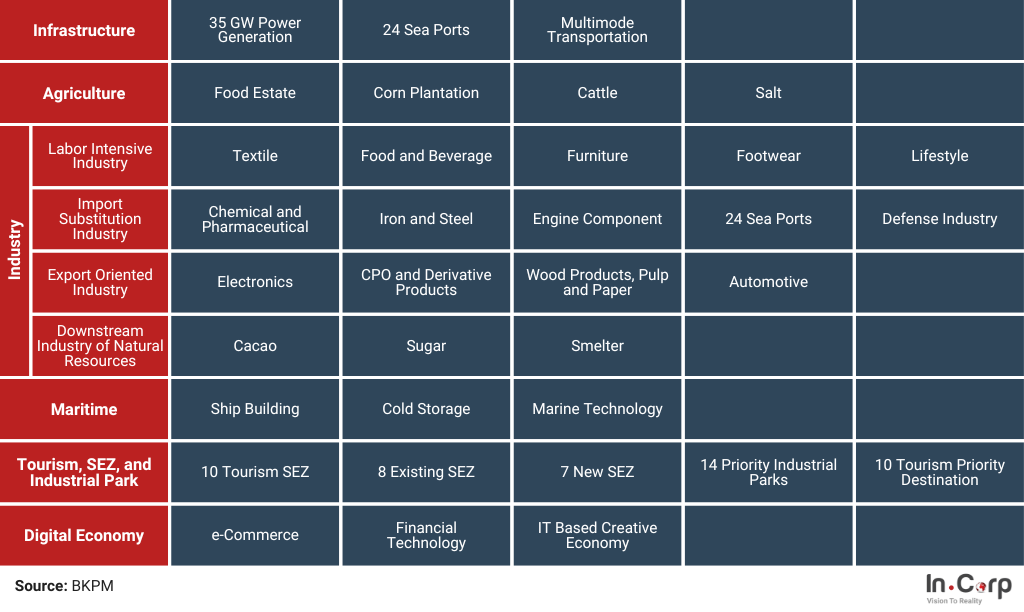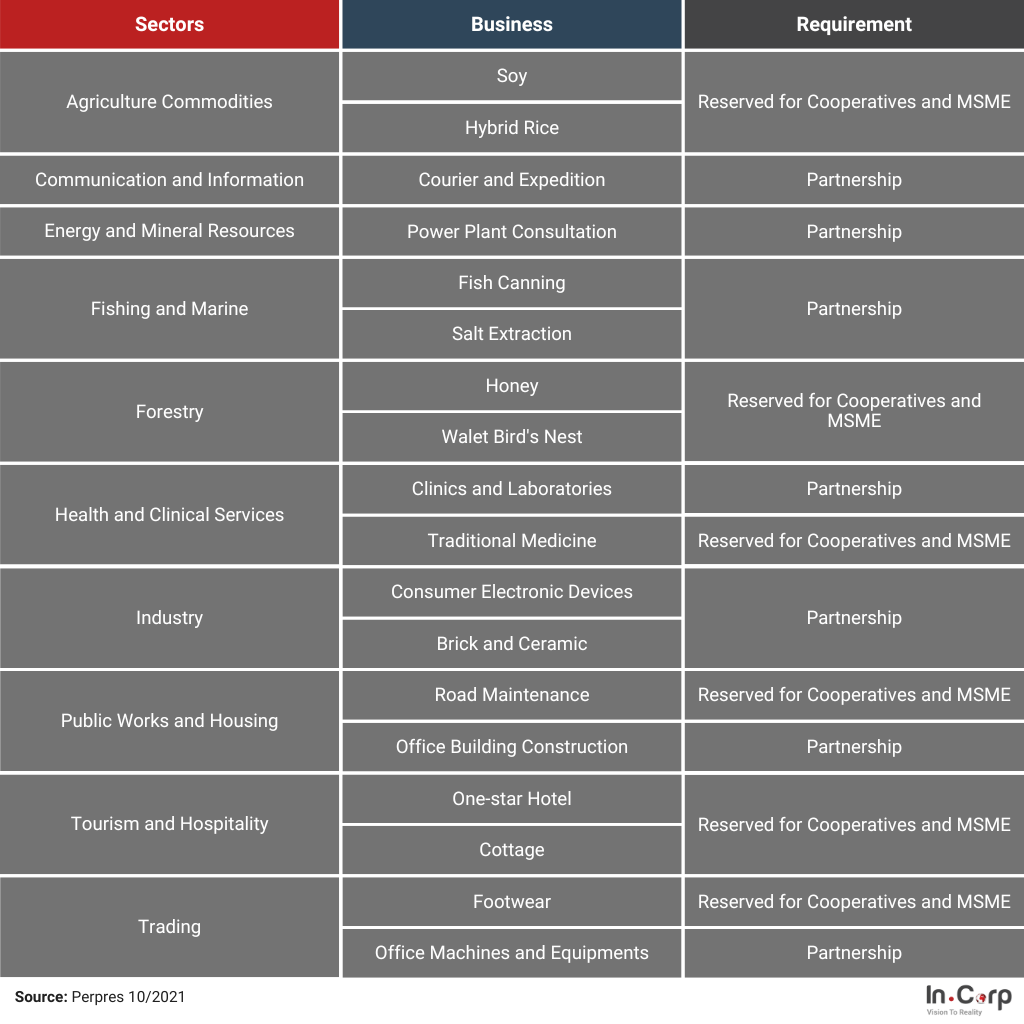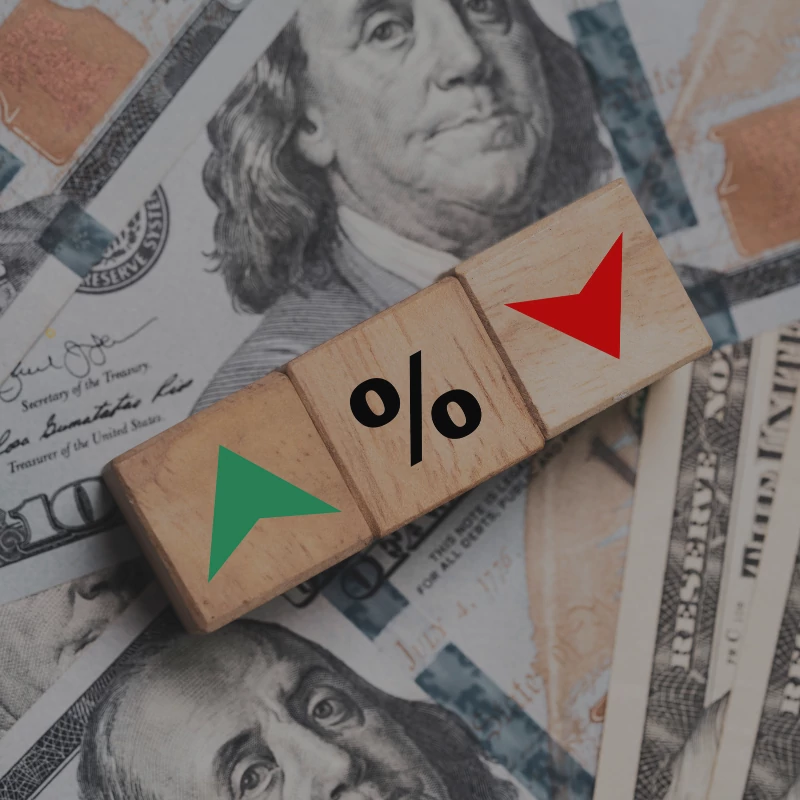Indonesia’s enactment of the Omnibus Bill has significantly changed its investment landscape, opening up new business sectors and lines to foreign investors. The updated Negative Investment List, now known as the Positive Investment List, aims to attract foreign investment.
However, a closer examination reveals both opportunities and challenges for investors. This article delves into the categories of Indonesia’s Positive Investment List, providing a comprehensive understanding of its implications.
Four categories of Indonesia’s Positive Investment List
Investors should note the creation of a new category in the latest Positive Investment List.
| Positive Investment List Categories | Business Lines open to foreign investments |
|---|---|
| Priority Sectors (NEW) | 245 |
| Business Fields With Specific Requirements Or Limitations | 46 |
| Corporations with Cooperatives & local MSMEs | 51 |
| Closed Sectors | 112 |
Indonesia’s priority sectors
Under Presidential Regulation (Perpres) 10/2021, foreign companies (commonly referred to as PT PMA) interested in these business lines will need to meet a set of criteria including but not limited to; national projects, export-oriented, use of advanced technology, labor intensive and high capital investment.
According to BKPM, the following table illustrates Indonesia’s Priority Sectors.

While the new regulation did not clearly define labor intensive, according to the Ministry of Industry, labor intensive is defined as businesses that employ at least 200 workers with a labor cost that accounts for 15% of total production costs.
The government has set up ambitious criteria for its priority sectors. Still, foreign companies in this category are set up for various fiscal and non-fiscal incentives, including tax holidays. Capital-intensive businesses over IDR 500 billion receive a 100% cut in Corporate Income Tax for up to 20 years. Investments worth IDR 100 – 500 billion will be granted a 50% reduction in Corporate Income Tax, based on Peraturan Menteri Keuangan Nomor: 130/2020, which regulates Indonesia’s tax holiday policy. In comparison, foreign companies relocating to Malaysia benefit from an income tax rate of 0 – 10% for up to 10 years.
In total, there are 245 business lines included under the priority sector. Eighty-three business lines are eligible for tax allowances, while 18 can get tax holidays, and 44 can get investment allowances.
| Business Line | Current Arrangement | Tax Incentives | Previous limitation |
|---|---|---|---|
| Canned fruit and vegetables | Open for 100% foreign investment | Investment allowances | Maximum 30% foreign investment |
| Digital Economy (Including website hosting and e-commerce) | Open for 100% foreign investment | Tax Holiday | – |
| Storage, Purification, and Distribution of Drinking Water | Open for 100% foreign investment | Tax allowances | Maximum 95% foreign investment |
| Golf Field | Open for 100% foreign investment | Tax holiday | Maximum 67% foreign investment (70% for ASEAN Countries) |
Partnerships with Indonesia cooperatives and MSME
As the Indonesian government continues to transform and respond to the changes brought on by COVID-19, its Positive Investment List must consider how MSME, digitalization, and new consumer demands will look in a post-pandemic investment landscape.
There are 51 business lines under this category; the notable sectors are:

Foreign investors or companies looking to enter these businesses will require a local partnership arrangement under the following forms of partnerships with Indonesian companies.
| Profit sharing | Subcontracting | Outsourcing | Distribution |
Aside from the four listed arrangements (above), the Ministry of Cooperatives and SMEs have created a climate that encourages medium-sized enterprises to list on Indonesia’s Stock Exchange to aid its financing capabilities.
Business fields with specific requirements or limitations
The amendments to this category left a minor mark, affecting a handful of business sectors: media, broadcasting, aviation, sea transport, wood, and coffee.
There are a total of 46 business lines included in this category. Here are some of them:
| Business Line | Arrangement | Requirement |
|---|---|---|
| Publishing for newspapers and magazines | Maximum foreign investment at 49% | Through the capital market and in the framework of business expansion or development. |
| The domestic line for public service | Maximum foreign investment at 49% | – |
| Overseas Liner and Tramper Freight | Maximum foreign investment at 49% | – |
| Inter-Provinces’ Pioneer Line | Maximum foreign investment at 49% | – |
Indonesia closed sectors from foreign investment
A total of six sectors remain closed or restricted for investments from both domestic and foreign companies.
- Class-I narcotics and cultivation;
- All forms of gambling activities;
- Fishing of endangered species;
- Utilization of corals found in nature for the production of jewelry, souvenirs, building materials, etc.;
- Chemical weapons production; and
- Industrial ozone-depleting substances industries and industrial chemicals.
How InCorp Indonesia can assist
Find out first-hand what it takes to expand into Indonesia. We help clients rethink structure & cost to deliver on business ROI.
Stay on top of regulations with tailor-made solutions to break into Indonesia. Contact us for a 1:1 consultation by filling in the form below.



